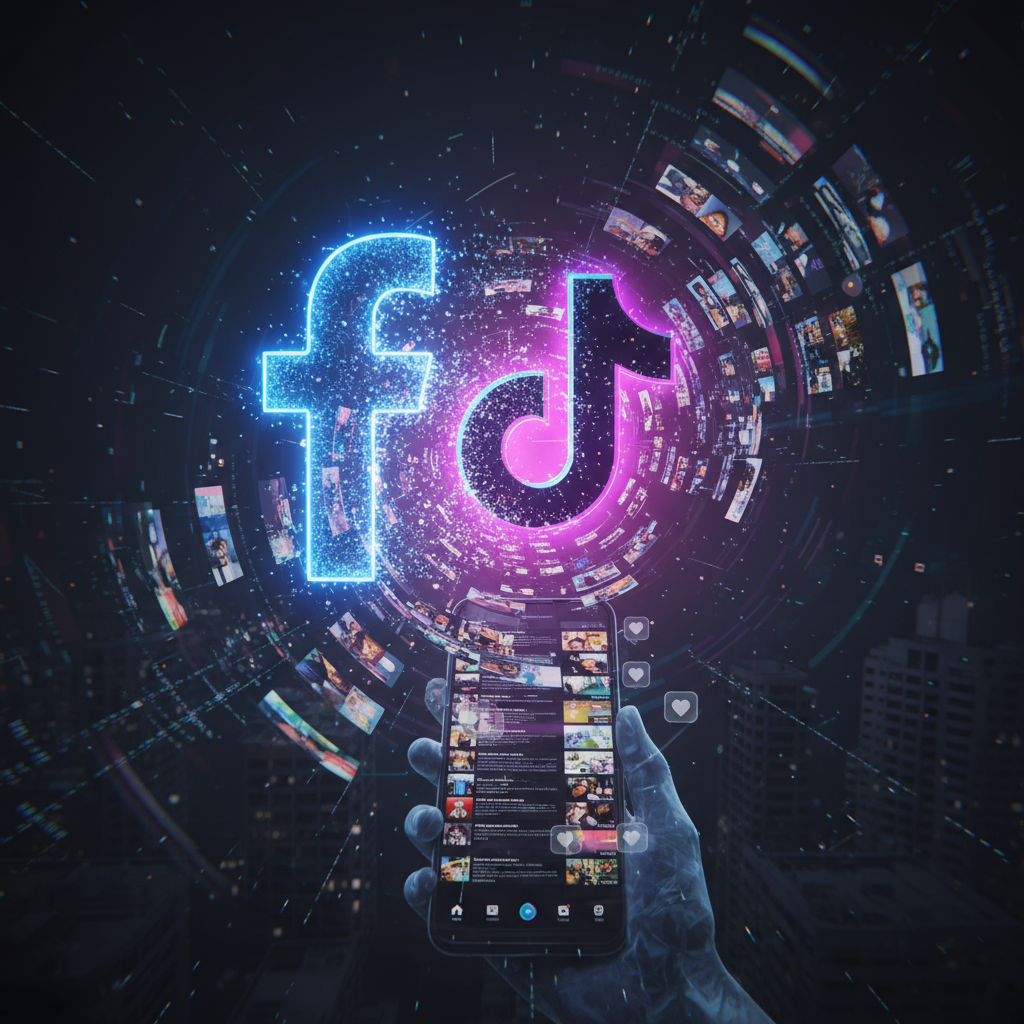Is Facebook Sacrificing Its Soul to Become the Next TikTok?

Remember the good old days of Facebook? Scrolling through photos of your friends’ vacations, celebrating birthdays, and maybe a few (too many) political rants from your uncle. It felt like a digital family album, a place to connect with the people you knew. But if you’ve opened the app lately, you’ll have noticed a distinct shift. What used to be a carefully curated feed of your network now feels… different. More vibrant, frenetic, and filled with short-form videos from creators you’ve never heard of. Yes, Facebook is undeniably “TikTok-ifying,” and it’s a transformation that has both users and industry observers raising eyebrows.
This isn’t a subtle evolution; it’s a strategic pivot driven by Meta’s desire to stay relevant in an increasingly competitive social media landscape. As TikTok surged in popularity, particularly among younger demographics, Facebook, once the undisputed king, found itself playing catch-up. The response? A full-throttle embrace of short-form video, algorithmic recommendations, and a user experience heavily inspired by its Chinese rival. But what does this mean for the platform we thought we knew, and is it a sustainable path forward?
The Algorithmic Shift: Friend-Centric to Discovery-Driven

The most significant change in Facebook’s TikTokification is the fundamental alteration of its core feed. Historically, Facebook prioritized content from your friends, family, and pages you followed. It was a “friend bubble,” designed to keep you updated on your immediate social circle. Today, that bubble has burst. Your feed is now dominated by “Reels” – short, vertical videos indistinguishable from TikToks – often from creators you don’t follow, recommended by an algorithm.
This shift from a social graph to an interest graph means that Facebook is now functioning more like a discovery engine than a personal network. The algorithm plays a much more prominent role in what you see, pushing content it *thinks* you’ll like, regardless of whether it originates from your connections. While this can sometimes lead to delightful discoveries, it often results in a fragmented experience where the faces of your actual friends are buried beneath a deluge of trending dances, comedic skits, and informational snippets. The initial premise of Facebook – connecting with people you know – seems to have taken a backseat to endless entertainment.
The Rise of Reels and the Creator Economy Push
Central to Facebook’s TikTok strategy is the aggressive promotion of Reels. You can’t open the app without encountering them, often accompanied by strong prompts to create your own. Meta has invested heavily in this format, offering financial incentives to creators and integrating Reels seamlessly into various parts of the Facebook interface, including Groups and even Messenger. This is a clear move to capture a slice of the lucrative creator economy that TikTok so effectively pioneered.
By prioritizing Reels, Facebook aims to attract and retain content creators who are currently thriving on TikTok. The idea is that if creators can monetize their short-form video content on Facebook, they’ll be less likely to exclusively focus on other platforms. However, this also means that the overall content landscape of Facebook is becoming more professionalized and less spontaneous. The raw, unfiltered moments that once defined casual sharing among friends are being overshadowed by highly produced, algorithm-friendly videos designed for broad appeal.
Navigating the Identity Crisis: What Is Facebook Anymore?
This wholesale adoption of TikTok’s model inevitably leads to a crucial question: What is Facebook anymore? For many long-time users, the platform now feels disorienting. The “friend bubble” that once provided a sense of community is deflating, replaced by an endless stream of content from strangers. This can lead to user fatigue and a sense of disconnection, as the original purpose of the platform becomes increasingly muddled.
The danger for Facebook is that in trying to be everything to everyone, it risks losing its distinct identity. If it simply becomes “another TikTok,” what differentiates it from the original? Users might find themselves asking why they should consume short-form video on Facebook when TikTok offers a more refined and established experience in that niche. Furthermore, for users who prefer the traditional friend-centric experience, this pivot might alienate them entirely, pushing them towards other platforms or reducing their engagement.
Can Facebook Win the Short-Form Video War?
Facebook’s transformation into a TikTok-esque platform is a high-stakes gamble. On one hand, it’s a necessary move to remain competitive in a rapidly evolving social media landscape. Ignoring the explosive growth of short-form video would be a fatal error for any major platform. By embracing Reels and a discovery-driven algorithm, Facebook hopes to recapture lost youth demographics and broaden its appeal.
However, the question remains whether it can truly beat TikTok at its own game. TikTok has a first-mover advantage, a highly engaged user base, and an algorithm that is famously addictive. Facebook, with its legacy infrastructure and an older, more established user base, faces an uphill battle in convincing users that its version of short-form video is superior or even on par. The attempt to incorporate TikTok’s essence while maintaining some semblance of its original identity creates a hybrid that might satisfy neither camp perfectly. While the push is aggressive and the investment significant, the long-term success of “TikTokified Facebook” is far from guaranteed. It’s a testament to the power of innovation in the tech world that even giants like Facebook must constantly reinvent themselves to survive.

